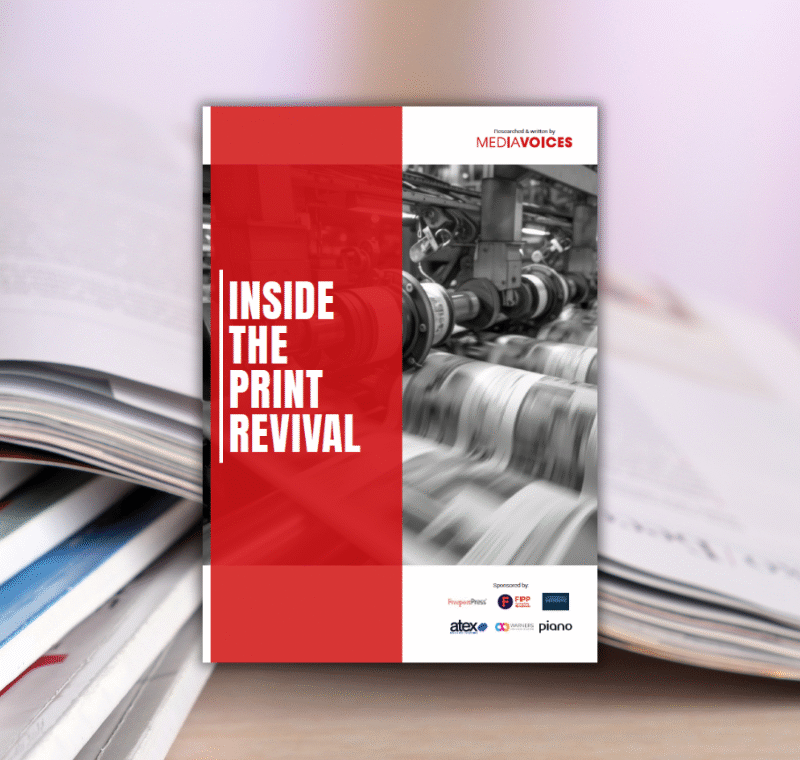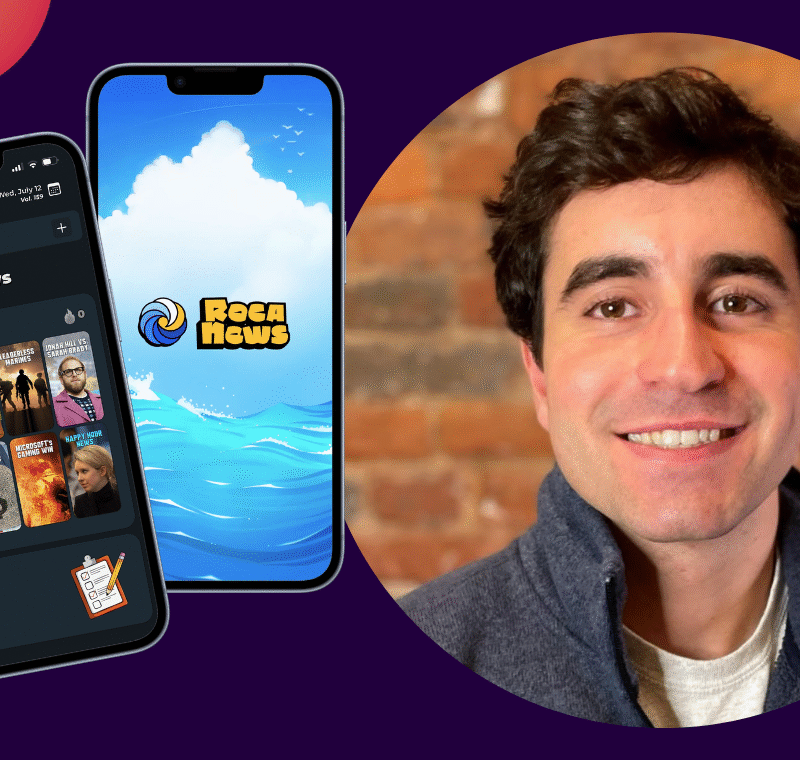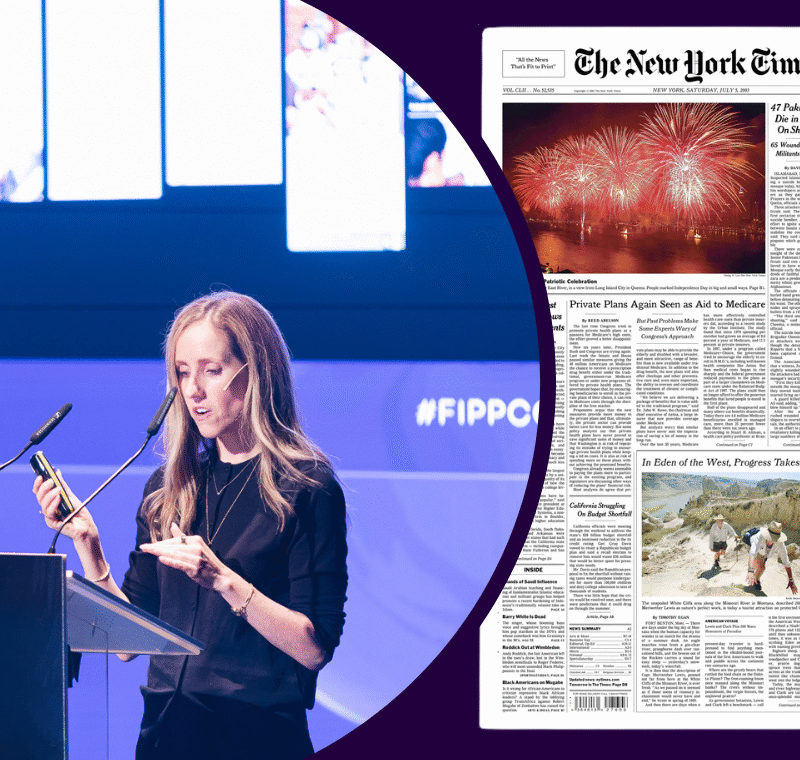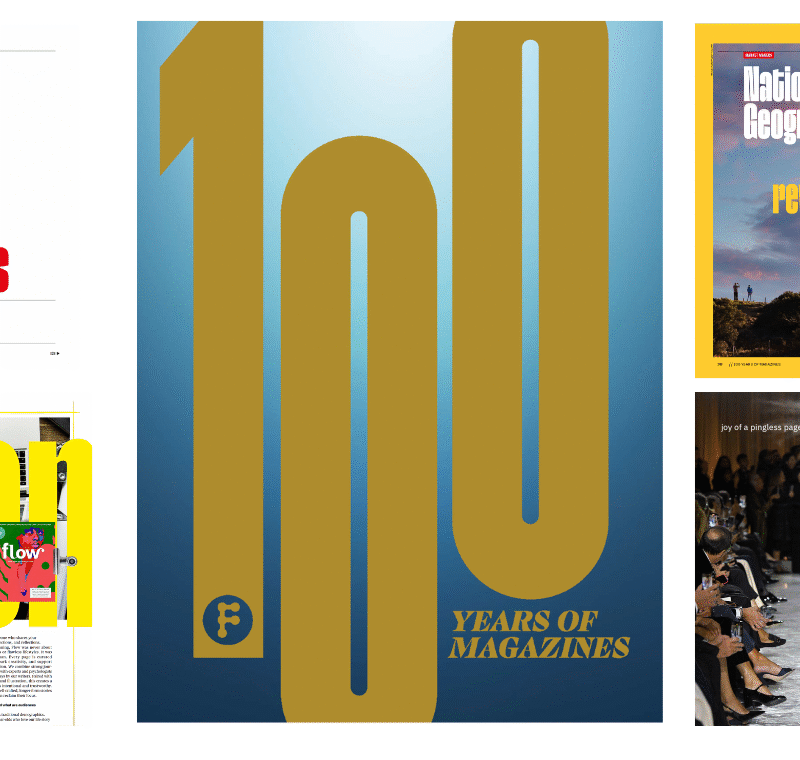[Video] The role of AI in native advertising – and how to use it effectively
Below are highlights from the interview which have been slightly edited for clarity.
AI will free creativity
“I believe that AI tools, AI native will really free marketers up to be more creative.
Today, marketing departments are tasked with analysing so much data and compiling reports that go to clients that sometimes don’t get read because the client is sifting through reports that they can’t understand.
RELATED: Five global native advertising trends 2018
There’s just too much data in many ways for the human mind to process. So you could either hire a thousand people in your team — which is not scalable — or you could use an AI tool to help create insights that inform your marketing and effectively lets marketers do what they do best which is be creative.”
AI won’t replace you
“A point around AI that quite often comes up is that ‘AI is gonna replace me. I’m not going to have a job anymore, future conferences will be all about machines speaking to each other. There’ll be no human interaction whatsoever.’
That’s not the case.
RELATED: Using data is a good way to win awards
We’re gonna see more and more specific roles developing for humans on the back of the technology that we’re developing as AI platforms.
I liken it to the advent of programmatic a few years ago where everyone thought there wouldn’t be a need for salespeople or various other kinds of marketing roles would disappear. That’s not really been the case. Programmatic has created more jobs in the space. They’re different jobs and the skill sets required for them are evolving. The same will be true of AI as a whole.”
Use AI to target better
“For a successful native advertising campaign, you’re looking at about putting content in context.
What that means from a marketer’s point of view and in terms of AI is that you can create more and more targeted content-led messages that really resonate with your audiences.
RELATED: Understanding blockchain – what does it mean for native advertising?
The amount of content that has been created day after day is close to infinity these days. You really need machine learning to be able to analyse that content and really better target that facility.
AI, unlike other tools that you have, it gets better the more you use it. It’s artificial intelligence so the more you feed the entity, the better it gets. Which means you can run campaigns with better and better performance across a large remit of publications.”
Take it to the next level
“My advice for anybody looking to use AI as a native advertiser? First of all, you need to think about context. You need to think about content. You need to think about your audience.
The mantra “think like a publisher” still holds true. Don’t rely on the AI to answer those questions for you. Think about who you want to target, but then take it on to the next level.
RELATED: Seven mobile native advertising trends to watch for in 2018
The next level across that is, think about emotions, think about sentiment, think about the attitudes that you think some of your target audience may or may not be in their frame of mind during the buy or research cycle.
Think along those lines and how you can create detailed targeting. Something we do at Adyoulike is targeting positive and negative sentiment. Just as a very basic kind of targeting option which AI affords which wasn’t really there previously.”
It gets better with time – but won’t answer all your questions
“Secondly, you do need to invest time into AI. There’s very little benefit from running a test for an afternoon on a platform and seeing that the results weren’t good enough. It gets better the more you feed the data into that platform.
Marketers need to realize that AI is a tool. It’s not the answer to all of your marketing woes. You don’t just plug it in and off it goes. You do need to analyse the results that the machines generate.
RELATED: “We were the first to bring native AI to the market – we will not be the last”
Really, it’s about not relying on AI effectively for your content considerations. It’s not going to answer — at this stage anyway — your creativity problems. But really it should process the data and the analysis that we have today as marketers when you’re creating lots and lots of content on the feed to sift through.
So don’t effectively think that AI is going to answer absolutely all of your problems as a marketer. It will help you reach a more targeted audience but it will also help you scale.
It should improve the efficiency of your department and your marketing channels. And over time it will become better and better. It’s a new technology that we’ve got at play at the moment.”
More like this
Thinking like a journalist will make you awesome at native advertising
Using data is a good way to win awards
[Video] “Brands should demand ownership of data”
[Video] New York Times’ T Brand Studio shares 12 tips for creating killer content









